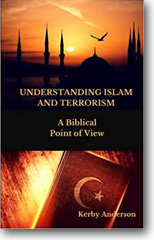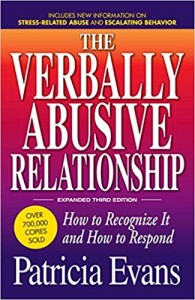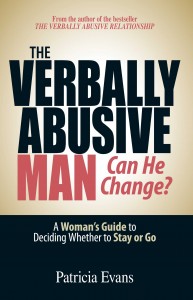What does the Bible say about Satan, and what do Christians believe about him? Not only is this an important biblical doctrine, but it has also been used to determine if someone has a biblical worldview. Kerby Anderson explains the basics about Satan, how he catches us in his snares, how to resist his temptations.
 The Barna Group has found that a very small percentage of born again Christians have a biblical worldview. They define a “biblical worldview” as having the following six elements: “The Bible is totally accurate in all of the principles it teaches; Satan is considered to be a real being or force, not merely symbolic; a person cannot earn their way into Heaven by trying to be good or do good works; Jesus Christ lived a sinless life on earth; and God is the all-knowing, all-powerful creator of the world who still rules the universe today.”{1}
The Barna Group has found that a very small percentage of born again Christians have a biblical worldview. They define a “biblical worldview” as having the following six elements: “The Bible is totally accurate in all of the principles it teaches; Satan is considered to be a real being or force, not merely symbolic; a person cannot earn their way into Heaven by trying to be good or do good works; Jesus Christ lived a sinless life on earth; and God is the all-knowing, all-powerful creator of the world who still rules the universe today.”{1}
Various surveys (including the Barna surveys) show that many Christians think that belief in Satan is optional. After all, they argue, if I believe in Jesus that is enough. But if you believe that Jesus was God then you have to believe that Satan exists. Satan is mentioned in the Gospels twenty-nine times. And in twenty-five of those references, Jesus is the one talking about Satan.
 It is also worth noting that Satan is mentioned many other times in the Bible. Satan is referred to in seven Old Testament books and every New Testament writer talks about Satan. Belief in Satan is not optional.
It is also worth noting that Satan is mentioned many other times in the Bible. Satan is referred to in seven Old Testament books and every New Testament writer talks about Satan. Belief in Satan is not optional.
When Satan is discussed in the New Testament, he is identified by three titles. These three titles describe his power on earth and his influence in the world:
1. Ruler of the world – Jesus refers to Satan as “the ruler of this world” (John 12:31; 14:30; 16:11). This means that he can use the elements of society, culture, and government to achieve his evil ends in this world. That doesn’t mean that every aspect of society or culture is evil. And it doesn’t mean that Satan has complete control of every politician or governmental bureaucrat. But it does mean that Satan can use and manipulate the world’s system.
2. God of this world – Paul refers to Satan as “the god of this world” who “has blinded the minds of the unbelieving so that they might not see the light of the gospel of the glory of Christ, who is the image of God” (2 Corinthians 4:4). Satan sets himself up as a false god to many. His power over religion and the ability to promote false religions keeps people from know the true gospel.
3. Prince of the air – Paul reminds Christians that they were dead in their trespasses and since in which they “formerly walked according to the course of this world, according to the prince of the power of the air.” Satan is the prince of the air and thus controls the thoughts of those in the world system. The Bible says: “The whole world lies in the power of the evil one” (1 John 5:19). So we should not be surprised that we find ourselves in the midst of spiritual warfare.
How Did Satan Fall?
The Bible doesn’t say much about Satan and his fall. There are two passages in Scripture that many believe does describe Satan’s fall but not all theologians are convinced. These passages are Ezekiel 28:11-19 and Isaiah 14:12-19.
Ezekiel predicts the coming judgment of the Gentile nations and refers to “the prince (or leader) of Tyre” and then later to “the king of Tyre.” These do not seem to be the same person. The first is obviously the earthly leader of the city Tyre. Ezekiel is predicting his ultimate downfall and the destruction of his kingdom.
The person referred to as the “king of Tyre” seems to be a different person. He has “the seal of perfection” and was “blameless.” He is described as “full of wisdom and perfect in beauty.” It also says that he was “in Eden, the garden of God.”
It appears that the “king of Tyre” describes Satan who was serving God as an angel. The passage further says that Satan was “lifted up” because of his beauty which many commentators suggest mean that he was the greatest of all of God’s creations. But he sinned. This passage says “you sinned” and “you corrupted your wisdom by reason of your splendor.”
Another passage that appears to be talking about Satan is where the prophet Isaiah is predicting that God will bring judgment against Babylon. The first part of chapter 14 (verses 1-11) is directed at the king of Babylon. But many theologians and commentators believe that the subject changes in the next section (verses 12-19) because it focuses on the “star of the morning.”
It worth mentioning that the “star of the morning” in verse 12 could just as easily be translated “the shining one.” That connects with Paul’s statement that Satan is an “angel of light” (2 Corinthians 11:14). The passage also says that he has “fallen from heaven.” It seems like we are not talking about the Babylonian king but actually talking about Satan.
If this passage is talking about Satan, then it tells us more about his motivations that led to his fall. Five times in this passage we see the phrase “I will.” He is prideful and wants to achieve a position “above the stars of God” (Isaiah 14:13). He also sought to be “like the Most High” (Isaiah 14:14). And he wanted to “sit on the mount of assembly in the recesses of the north” (Isaiah 14:13). Each of these desires tells us more about his motivations.
From this passage we discover three things about Satan. First, Satan wanted to be superior to creation. Second, Satan wanted to be superior to the Creator. Third, Satan wanted a superior place to rule all of creation.{2}
What Do We Know About Satan’s Character?
The Bible tells us a great deal about Satan through the various names that are given to him. Let’s begin by looking at the name “Satan.” In Hebrew the name means “adversary.” He is opposed to God and His plans. And Satan is also opposed to God’s plan in our lives. If we are to be successful in spiritual warfare, we must understand that he is our adversary. This characteristic of Satan is significant. The Old Testament uses this name for him eighteen times, and it is used thirty-four times in the New Testament.
Another common name for Satan is “the devil.” This name in the Greek is diabolos and is derived from the verb meaning “to throw.” The Devil throws accusations and lies at us. This is a significant part of spiritual warfare. He accuses believers while he slanders and defames the name of God. This name occurs thirty-six times in the New Testament.
There is one passage in the New Testament that uses both of these names for Satan. Peter warns believers about Satan who is an “adversary” and “the devil” who is on the prowl like roaring lion (1 Peter 5:8). He is a formidable adversary that believing Christians should not take lightly.
Satan is also known as the “tempter.” He tempts us to follow him and his evil ways rather than follow God’s plan for our lives. When he appears to Jesus in the wilderness, he is referred to as the tempter (Matthew 4:3). Also, Paul refers to Satan as “the tempter” (1 Thessalonians 3:5) and thus illustrates one of the key characteristics of Satan: he tempts humans to sin.
A related name is “serpent.” Satan took the form of a serpent to tempt Adam and Eve in the Garden of Eden (Genesis 3). Paul talks about Satan tempting Eve due to his subtle tempting and craftiness (2 Corinthians 11:3).
In addition to tempting believers, Satan is referred to as the “accuser of the brethren” (Revelation 12:10).
Satan is also called “the evil one” both by Jesus (John 17:15) and John (1 John 5:18-19). Satan can control the world system, but believers are given the power to resist his temptations and evil designs. Satan is the source of much of the evil in the world, and that is why believers must reckon with his impact and content with spiritual warfare.
We also see his power in the names that describe his dominion. He is described as “the god of this world” in 2 Corinthians 4:4. He is also called “the prince of the world” (John 14:30) and “the prince of the power of the air” (Ephesians 2:2). And he is known as “the ruler of the demons” in Matthew 12:24.
How Are We Caught in the Snares of Satan?
The Bible teaches that Satan can capture our minds and divert us from God’s purpose. This is called a snare. In certain biblical passages (for example, Psalm 124), we read about fowlers and the use of snares. They would capture birds by spreading a net on the ground that was attached to a trap or snare. When the birds landed to eat the seeds spread out, the trap would spring and throw the net over the birds.
A snare could be anything Satan uses that entangles us or impedes our progress. It could be roadblock or it could be a diversion. A wise and discerning Christian should be alert for these snares that can prevent our effectiveness and even ruin our testimony.
The character of Satan gives us some insight into his methods and techniques. James gives us a perspective on this by telling us that when we are tempted we should not blame God. Instead we should understand the nature of temptation and enticement. “But each one is tempted when he is carried away and enticed by his own lust. Then when lust has conceived, it gives birth to sin; and when sin is accomplished, it brings forth death” (James 1:14-15).
James shows that temptation toward sin in usually a process rather than a single act. We are tempted and then carried away and enticed by our own lust. Like a fisherman who tries to catch a fish using bait, Satan tries to entice us by placing before us something that will cause us to be carried away. Then when lust has conceived, we do it again, and eventually experience death.
Satan is not only the tempter, but he is a subtle deceiver “who deceives the whole world” (Revelation 12:9). Jesus warned that there will be “false Christs and false prophets” who will “show great signs and wonders.” They will be so convincing that they “shall deceive the very elect” (Matthew 24:24).
Paul teaches that Satan disguises himself as an “angel of light” and his demons transform themselves as “ministers of righteousness” (2 Corinthians 11:14-15). Satan’s main strategy is to lie. Jesus said concerning Satan, “When he speaks a lie, he speaks from his own resources, for he is a liar and the father of it” (John 8:44). Paul prays that Christians would “no longer be children, tossed to and fro and carried about by every wind of doctrine, by the trickery of men, in cunning craftiness of deceitful plotting” (Ephesians 4:14).
How Did Jesus Resist the Temptations of Satan?
How can we resist Satan’s temptations? We can learn some valuable lessons about how to deal with spiritual warfare by watching how Jesus was able to resist the temptations of Satan (Matthew 4; Mark 1; Luke 4) in the forty-day Temptation. The Bible records three attempts by Satan to get Jesus to act independently of His Father’s will for Him.
1. Challenged God’s provision – Satan first challenged Jesus to turn stones into bread (Matthew 4:3). The Bible tells us that Jesus was very hungry after fasting for forty days. While Jesus had the power to do so, He resisted because it was His Father’s will that he fast in the wilderness for forty days and forty nights.
Instead Jesus quotes a portion of Deuteronomy 8:3 back to Satan. “But He answered and said, ‘It is written, man shall not live on bread alone, but on every word that proceeds out of the mouth of God’” (Matthew 4:4).
2. Challenged God’s protection – Satan next took Jesus into “the holy city and had Him stand on the pinnacle of the temple” (Matthew 4:5). He then commanded Jesus to throw Himself down in order for the angels to protect Him. In other words, Satan wanted Jesus to take His protection into His own hands and no longer trust in God’s protection. Notice that Satan even quotes Scripture (Psalm 91) to Jesus (Matthew 4:6) in order to tempt Him.
Jesus, however, quotes a portion of Deuteronomy 6:16 back to Satan. “Jesus said to him, ‘On the other hand, it is written, you shall not put the Lord your God to the test”” (Matthew 4:7).
3. Challenged God’s dominion – Satan then took Jesus “to a very high mountain and showed Him all the kingdoms of the world and their glory” (Matthew 4:8). And he said to Him, “All these things I will give You, if You fall down and worship me” (Matthew 4:9). Satan would give Jesus rule and dominion over all that the world could provide if he were turn away from His mission to save mankind and worship Satan.
Notice that Jesus did not challenge Satan’s claim that he had the kingdoms of the world to give to Him. After all, Satan is the “prince of this world” (John 12:31). But instead Jesus said to him, “Go Satan! For it is written, you shall worship the Lord your God and serve Him only” (Matthew 4:10).
As believers we should remind ourselves that Satan is a defeated foe. Jesus tells us that “the ruler of this world has been judged” (John 16:11). But his influence is still felt. Jesus also refers to Satan as “the ruler of this world” (John 12:31). John tells us that “The whole world lies in the power of the evil one” (1 John 5:19). And Peter reminds us that “the Devil walks about like a roaring lion, seeking whom he may devour” (1 Peter 5:8). The good news is that “greater is He who is in you than he who is in the world” (1 John 4:4).
Notes
1. “Barna Survey Examines Changes in Worldview Among Christians over the Past 13 Years,” March 2009, www.barna.org.
2. You can find more information about Satan, demons, angels, and spiritual warfare in my book A Biblical Point of View on Spiritual Warfare (Eugene, OR: Harvest House Publishers, 2009).
© 2011 Probe Ministries
Probe Answers Our Email: Angels and Demons |




